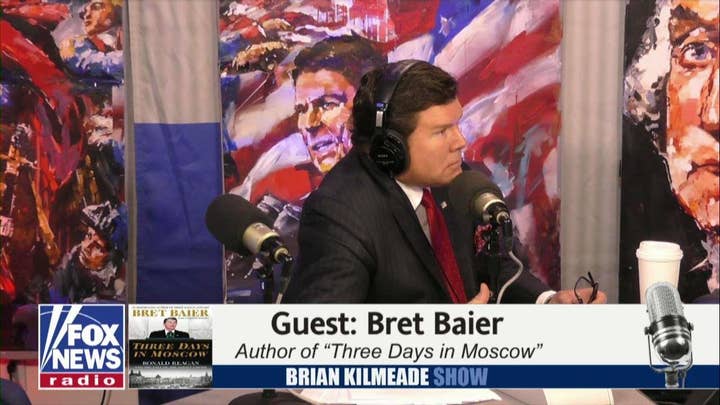Thirty years ago this month, when Mikhail Gorbachev tried to sign the document formally terminating the Soviet Union, the blood-stained tyranny responsible for the deaths of more than 100 million victims during the last century, he discovered his pen had no ink. He had to borrow a Bic pen from the CNN camera crew covering the event.
It was a fitting end for a system that had set out to create a communist world and wound up removing the hammer and sickle from atop the Kremlin.
Along with the celebrations, certain questions inevitably come to mind. Why did a system that appeared to be so militarily and economically strong implode so quickly? Was it inevitable? Or was it the result of the policy of containment that the United States and its allies had faithfully followed for decades at a cost of thousands of lives and many billions of dollars?
BIDEN'S AMERICA FACES DEVASTATING DEFEAT BY COMMUNIST CHINA
Zbigniew Brzezinski, the former national security adviser, argued that Marxism-Leninism was "an alien doctrine" imposed by an imperial power.
Richard Pipes, the eminent Harvard historian, pointed to incidental causes like the invasion of Afghanistan and more profound problems like economic stagnation.
The social philosopher Michael Novak said communism, by attempting to destroy the "human capital" on which a free economy and a free polity are based, sowed the seeds of its own destruction.
Indeed, by the 1980s, Soviet communism was no longer a nuclear fortress but a Potemkin village easily penetrated by electronic messages of democracy and capitalism from the West.
Reagan took his freedom offensive into the heart of the disintegrating Soviet empire.
All that was lacking was the right statesman with the right strategy. Enter President Ronald Reagan with his deceptively simple approach to ending the Cold War and bringing down the evil empire: "We win, they lose." No U.S. president or Western leader had heretofore openly declared a policy of victory.
The Reagan Doctrine was a highly sophisticated multifaceted offensive that included covert and other support to the Solidarity movement in Poland, a psychological operation to engender indecision and fear among Soviet leaders, a global campaign to reduce Soviet access to Western technology, and a push to cripple the Soviet economy by driving down the price of oil and limiting natural gas imports to the West.
A core element of the Reagan Doctrine was SDI, the Strategic Defense Initiative. Opponents ridiculed SDI as "Star Wars," but the Soviets believed that the United States had the technical ability to build an anti-ballistic missile system.
More than any other strategic decision, Reagan’s unwavering commitment to SDI convinced the Kremlin it could not win an arms race and forced Gorbachev to end the Cold War at the bargaining table and not on the battlefield.
CLICK HERE TO GET THE OPINION NEWSLETTER
Almost as essential as SDI was President Reagan’s personal rhetorical offensive. Before a conference of evangelical ministers, for example, Reagan said the West should recognize that the Soviets "are the focus of evil in this modern world" and the masters of "an evil empire." Here was a compelling example of what Vaclav Havel called "the power of words to change history."
Far off in the Gulag, dissident Natan Sharansky saw the phrase "evil empire" in a Soviet newspaper and tapped out a message to fellow prisoners that at last the West had a leader who understood the Soviet Union.
Reagan took his freedom offensive into the heart of the disintegrating Soviet empire. Standing before the Brandenburg Gate in June 1987, he directly challenged the Kremlin, saying, "Mr. Gorbachev, tear down this wall!"
The statesman who wrote finis to the Soviet empire was Ronald Reagan, who came into office with a clear set of ideas he had developed over a lifetime. He forced the Soviet Union to abandon its goal of world communism by challenging its legitimacy, regaining superiority in military strength, and using human rights as a powerful psychological weapon.
CLICK HERE TO GET THE FOX NEWS APP
Lech Walesa, the founder of Solidarity that prepared the way for the collapse of communism in Poland and Eastern Europe, summed up Reagan with these words: "We in Poland … owe him our liberty." So too did the tens of millions behind the Iron Curtain.
By the time Reagan left office in January 1989, the Reagan Doctrine had achieved its goals – ending the Cold War without firing a shot, closing down the Soviet empire, and dumping Marxism-Leninism on the ash heap of history.













































